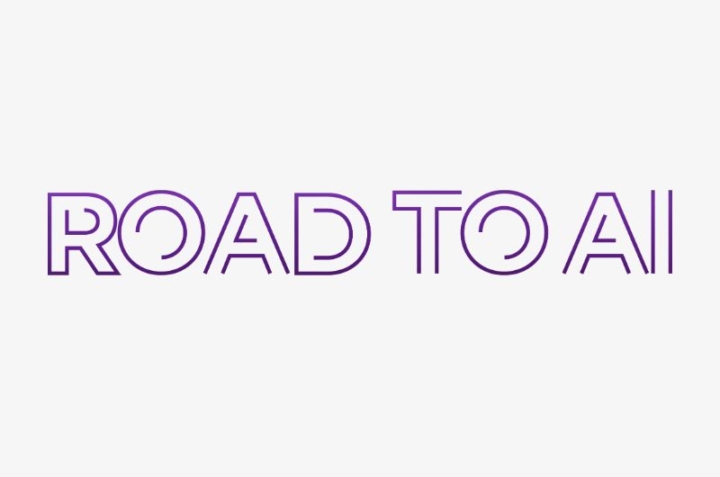This article was originally published in French. Discover the original version by using the language selector at the top right of this website.
Europe is lagging behind in the artificial intelligence race, far behind the Chinese and American giants who are shaping this disruptive technology in their own hands. But it can intelligently make up for lost time by opting for regulatory pragmatism and embodying an ambitious strategic vision that embodies its values.
AI, a power issue
Artificial intelligence is not neutral. Like all technologies, it is political, nourished by the values of those who develop it. It’s even more important to be aware of this because this all-purpose discipline has countless potential applications in society. Its ramifications already extend far beyond the laboratories where it was born, into the economic, military, geopolitical and, of course, ideological spheres.
Mastering artificial intelligence means being able to dictate your own standards, and by extension, your own vision of the world. Today, however, this technology is being shaped by two giants, behind which Europe wants to run. One is the United States, focused on expansion and mass consumption, the other is China, with its surveillance economy in the hands of an all-powerful state. Faced with this Manichean dichotomy – over-consumer versus model citizen – Europe, rich in so many nuances, has everything to offer an alternative vision. Except that it is woefully behind.
Avoid sclerosing regulations
To be sure, some national ambitions are emerging. In June 2023, French President Emmanuel Macron announced at Vivatech that he would invest 500 million euros to “encourage the emergence of five to ten clusters in artificial intelligence”, with the aim of setting “two to three global benchmarks“. He also unveiled the launch of the Tibi 2 plan to finance disruptive start-ups, with already “7 billion euros secured from institutional investors” out of a targeted total of 10 billion euros. The momentum is there, even if the amounts are not enough to make a difference. We need to up the ante and think collectively at the European level.
So far, Europe has mainly been doing what it does best: regulating. This 27-voice exercise is painfully slow when innovation can’t wait. The very first version of the AI Act, designed to regulate the use and marketing of artificial intelligence, was presented more than two years ago, when the technological capabilities of generative AI were still in their infancy. And it is not expected to be adopted before the end of 2023… Barely validated, already obsolete? All bets are off.
A step in the right direction was taken by Emmanuel Macron in June, when he called for the regulation of artificial intelligence that does not hamper innovation or the competitiveness of our companies. Europe must opt for an agile model that allows rules to be adapted as needed, and resist the temptation of a detailed and exhaustive approach that is bound to be sclerotic. It must embody a strong political vision that articulates the national ambitions of each Member State. And it must define a bold industrial strategy to support and stimulate innovation, with clearly defined priorities.
Race to AI: 4 pragmatic and ambitious levers for Europe
At the top of the list: ensuring sustainable and virtuous founding for artificial intelligence and other disruptive technologies. Sustainable, because innovation needs visibility to flourish. Virtuous, by ensuring that public money invested attracts private funding, as observed around the tech giants across the Atlantic. In France, the proposals put forward by MP Paul Midy as part of his parliamentary mission to support investment in innovative start-ups and SMEs are key to sustainably stimulating the innovation ecosystem.
Europe must also act to strengthen public-private partnerships to stimulate research and support disruptive projects on the market, transforming them into high value-added products and services. Here again, we could draw inspiration from what has been put in place in the United States. This measure should go hand in hand with a review of researchers’ salaries, to keep them in Europe instead of seeing them irrevocably succumb to the six-figure salaries offered by American tech companies.
The third lever is education. Awareness raising is essential to demystify AI and enable the general public to understand the challenges of this discipline. We must also invest massively in training to increase the number of AI engineers and researchers graduating from our grandes écoles and universities.
Finally, Europe must play the open source card to the full, with public and private learning data, documented and open algorithms that can be enriched by the power of the community. Open source is a lever for creating volume effects to rival the colossal resources invested in the USA and China. In the same spirit, the ecosystem, both public and private, must be regularly consulted in a flexible way for the emergence of concrete proposals.
Let's continue our exploration:
Get your questions answered by our Data & AI experts. Find out how we can help you realize the full potential of AI for your organization.
Read our Road to AI series to explore the many facets of artificial intelligence and unlock its power to grow your business.




